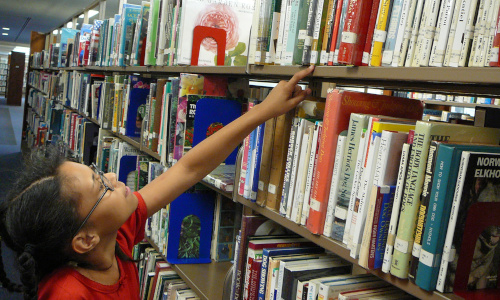When I finished Dan Brown’s DaVinci Code, I began researching the validity of Jesus Christ and Mary Magdalene sharing a bloodline protected by a secret society. When J.K. Rowling’s Harry Potter was accused of promoting the devil and witchcraft, I dove into the series. When Oprah pulled Jeanine Cummins’ American Dirt off her Book Club, I put it on hold at the library.
When the world makes a fuss about a book, consider my attention piqued.
Skimming the American Library Association’s list of most banned and challenged books over time, I’ve read more than my share, from To Kill A Mockingbird, The Adventures of Huckleberry Finn, and The Diary of Anne Frank to Captain Underpants and 13 Reasons Why. I have to say I’m quite surprised Flowers in the Attic didn’t make the list as it made the 10-year-old me… well… blush.
This fall, the conversation around controversial titles is heating up in Texas and across the country. In the Lone Star State, there was an inquiry into the books available to students in Texas school districts. School districts are being asked to report if they own any of the 850 books in question and if they do, how many copies of each and how much they paid for those books.
Amid television news headlines like, “‘Pornography in Texas schools: Texas Gov. Abbott calls for removal of library books,” Texas librarians have turned to social media asking for help:
“Librarians, I need your help. This is what we are facing in Texas. My principal wants to discuss this. I have just glanced at “The List” so I know I’m going to have a bunch of these. If you’ve been through something like this, how did you handle this and what did you do? My principal is an awesome guy I’m not sure where his thoughts are on this. We’re going to talk tomorrow.”
The Texas Library Association has responded with a statement and letter writing campaign of its own, “Banding Together to Protect the Freedom to Read.” In addition, the American Library Association has a challenge toolkit.
Yet, the available resources for school librarians do not seem to be enough. In my last column, I featured a panel discussion between three librarians for publishers who create content for schools and public libraries. During the discussion, librarian Tamara Cox from Anderson School District in South Carolina asked publishers for support and resources to defend her growing collection of books that are generating parent challenges.
- 10 reasons we love teachers - May 9, 2023
- 10 reasons we love school librarians - March 13, 2023
- Building culture and community takes more than a committee - February 9, 2023


